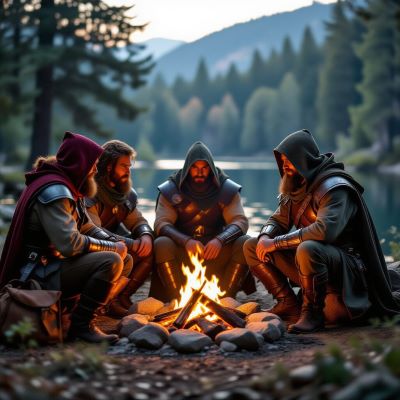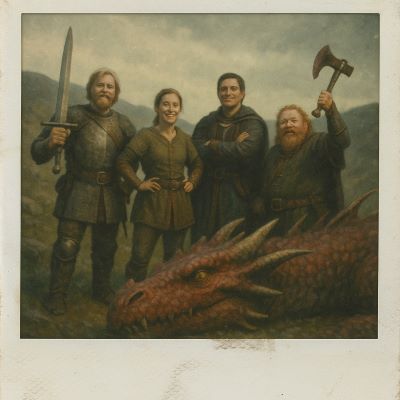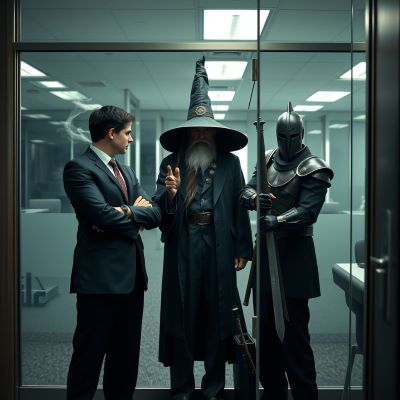We all know that in both Dungeons & Dragons (D&D) and the workplace, teamwork is essential for success. However, every group occasionally encounters a lone wolf—an individual who prefers to act independently rather than collaborate with the team. While independence can be a valuable trait in certain situations, a lone wolf’s behavior can be detrimental when it disrupts group cohesion, communication, and shared objectives. If left unchecked, a lone wolf can cause irreparable damage to a business or group.
What Is a Lone Wolf and Why Is It Detrimental?
A lone wolf is a player or employee who operates primarily on their own, often avoiding teamwork, disregarding group plans, and making decisions without consulting others. In D&D, this could be a character sneaking off to loot treasure without the party, or a player who constantly ignores group discussions in favor of their own agenda. In business, a lone wolf might be an employee who works in isolation, hoards information, doesn’t follow process or fails to engage in team projects.
Often individually a lone wolf can be successful. For example make great sales, or make a great in game fighter. However, their unwillingness to collaborate can cause significant issues, including:
- Lack of synergy: The group is forced to work around the individual rather than integrating them into team efforts.
- Poor communication: Important details are missed because the lone wolf operates separately.
- Reduced trust: Team members may feel frustrated or disconnected when the individual ignores their input.
- Lower efficiency: The group wastes time resolving conflicts instead of focusing on their shared goals.
Strategies for Dealing with a Lone Wolf in D&D
As a Dungeon Master, your goal is to balance individual player agency with team cohesion. Here are some ways to handle a lone wolf player effectively:
- Understand Their Motivation – Talk to the player to understand why they prefer to work alone. Are they roleplaying a specific character concept, or do they simply dislike group decision-making?
- Encourage Group Decision-Making – Implement moments where cooperation is necessary, such as puzzles, multi-step combat strategies, or social encounters requiring group input.
- Use Narrative Consequences – If the lone wolf consistently acts against the party’s interests, have the world react accordingly. NPCs may become untrusting, or the character may face in-game consequences for their isolationist behavior.
- Set Clear Expectations – Before the game, establish that D&D is a cooperative experience and that all players should engage with the group’s decisions.
Strategies for Dealing with a Lone Wolf in Business
Managing a lone wolf employee requires a balance of respecting their independence while ensuring they contribute to the team’s success. Here’s how leaders can address this behavior:
- Identify the Root Cause – Is the employee avoiding teamwork due to a lack of trust, unclear expectations, or personal preference? Understanding their reasoning helps tailor your approach.
- Encourage Open Communication – Lone wolves may not realize how their actions impact the team. Provide regular feedback and encourage dialogue to align them with team goals.
- Assign Team-Oriented Tasks – Give them projects that require collaboration, emphasizing shared success over individual achievement.
- Create Accountability – Ensure that responsibilities are clearly defined and that the lone wolf must provide updates and integrate their work with the team’s efforts.
Final Thoughts
While implementing the strategies above should bring a lone wolf around to integrating more with the team, there will be instances where they will refuse to do so. If this is the case and their behavior is having a detrimental impact on the team then you should seriously consider asking them to leave the gaming group. Or, in the case of a workplace begin enacting performance management. However, DMs and leaders alike can turn a lone wolf into a valuable team player. Whether in fantasy or the workplace, the best adventures—and successes—are built on cooperation.




